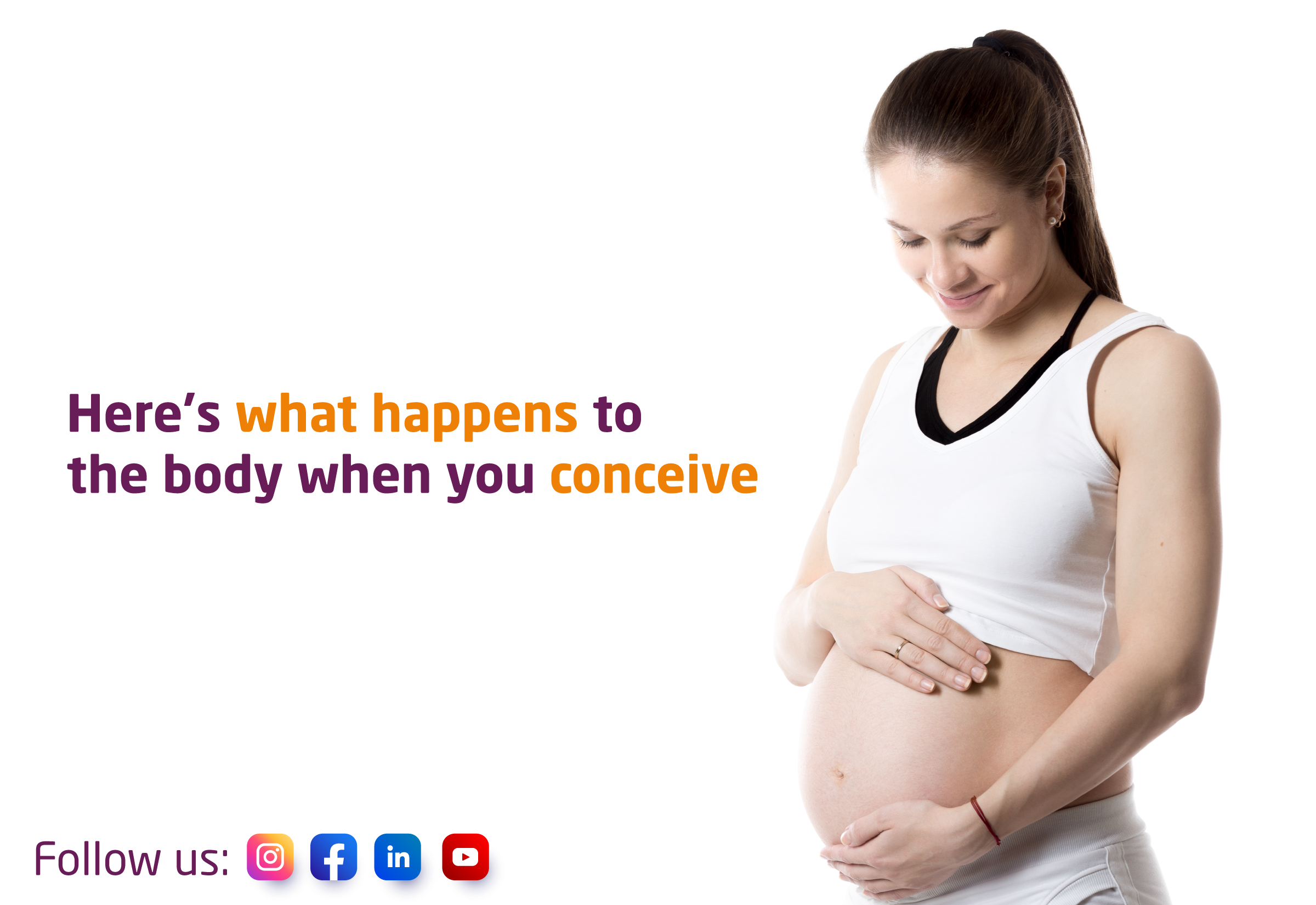Conception is the process that occurs when a sperm cell fertilizes an egg cell, resulting in the formation of a zygote that develops into an embryo. This process triggers a cascade of physiological changes in the female body, as well as in the developing embryo.
Here’s what happens to the body when you conceive:
- Fertilization: When a sperm cell successfully penetrates the egg cell, fertilization occurs. This triggers the release of hormones that prevent penetration of any other sperm into the egg and the release of any further eggs from the ovaries in the next menstrual cycle.
- Implantation: The fertilized egg then moves through the fallopian tube and into the uterus, where it implants into the uterine lining. This process typically occurs about 6-10 days after ovulation.
- Hormonal changes: Once the fertilized egg implants, it begins to secrete the hormone human chorionic gonadotropin (hCG), which triggers the production of estrogen and progesterone. These hormones help to maintain the pregnancy and support the growth and development of the embryo.
- Development of the placenta: The fertilized egg eventually develops into an embryo, and then a fetus. The placenta also forms at this time, which is responsible for releasing pregnancy-supporting hormones, providing nutrients and oxygen to the developing fetus and removing waste products.
- Physical changes: As the pregnancy progresses, the female body undergoes many physical changes to accommodate the growing fetus. These include weight gain, enlargement of the uterus, and changes in the breasts, as well as changes in all the systems of the body including the digestive and urinary systems.
- Emotional changes: Conception and pregnancy can also have significant emotional effects on the body. Women may experience mood swings, anxiety, and depression, as well as an increased sense of protectiveness and attachment to the developing fetus.
- Medical care: During pregnancy, regular medical checkups are essential to monitor the health of both the mother and the developing fetus. These checkups may include ultrasound scans, blood tests, and other diagnostic procedures.
- Nutritional requirements: During pregnancy, the nutritional requirements of the body change to accommodate the growing fetus. The body needs additional nutrients such as folic acid, iron, and calcium to support fetal development.
- Changes in the immune system: The immune system also undergoes changes during pregnancy to protect the developing fetus. The body suppresses certain immune responses to prevent the immune system from attacking the fetus, which it recognizes as foreign.
- Labour and delivery: The final stage of pregnancy is labor and delivery, which is triggered by a combination of hormonal and physical changes. The cervix begins to dilate and the uterus contracts, eventually leading to the birth of the baby.
- Postpartum changes: After delivery, the body undergoes many changes as it adjusts to life post-pregnancy. These changes include hormonal fluctuations, changes in breast milk production, and physical recovery from labor and delivery.
- Breastfeeding: Breastfeeding is a crucial part of postpartum recovery and provides essential nutrients to the newborn. The hormones involved in breastfeeding also help the uterus contract, reducing the risk of postpartum bleeding.
In conclusion, conception is the process by which a sperm cell fertilizes an egg cell, leading to the formation of a zygote that develops into an embryo. This process triggers a cascade of physiological changes in the female body, as well as in the developing embryo. From hormonal changes and the development of the placenta to physical and emotional changes, conception and pregnancy significantly impact the body. Regular medical care is essential during pregnancy to ensure the mother’s and developing fetus’s health and well-being.

